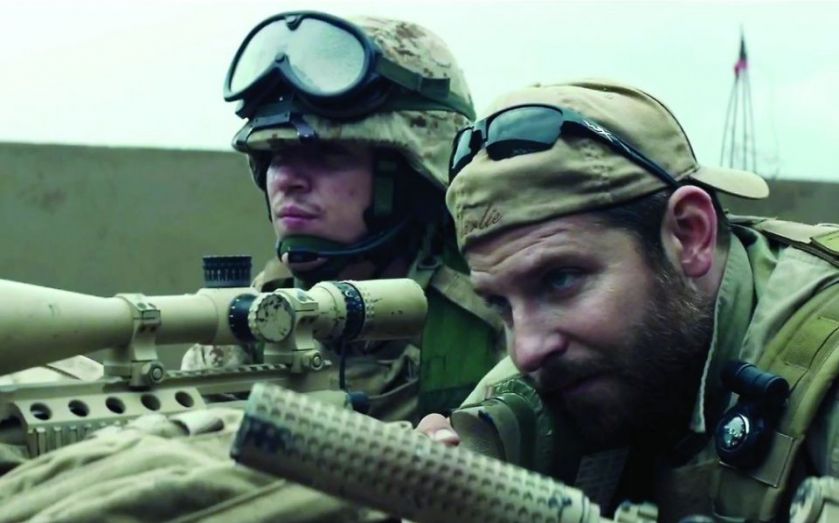Film review: American Sniper wide of mark

Cert 15 | ★★★☆☆
Clint Eastwood’s directorial career rivals even that of Woody Allen in terms of sheer volume of output, encompassing 30-odd movies over 40-odd years. But the theme of violence – usually carried out by men – and its place in the American psyche is an itch he just can’t seem to scratch.
This time he explores it through the story of real-life Navy SEAL Chris Kyle, who is credited with being the most deadly marksman in US military history, responsible for at least 160 kills. He’s a cowboy, both literally – before signing up with the SEALs he plied his trade vexing horses at the rodeo – and metaphorically, taking his gun to unknown lands to seek bloody retribution against his enemies.
Kyle, played by Bradley Cooper, is an unashamed, unapologetic killer – not an enthusiastic one, exactly, but one who never wavers from his belief in the cause. Eastwood appears to agree; there’s little doubt in this film who the good guys are in the badlands of Iraq.
The moralising is reserved for Kyle’s personal role in the conflict; his first major decision is whether to shoot a child he believes is carrying a grenade. The camera lingers on the small figure in his crosshairs, cuts to Kyle’s trigger finger, shows his impassive face as he decides to make the shot and continues to stare through the rifle at his lifeless body. It’s tense, but also chillingly sterile. Kyle just gets the job done. No celebration; no soul-searching.
Unlike the central characters in thematically similar movies The Hurt Locker or Jarhead, Eastwood’s hero lacks any real emotional depth; he’s likeable enough, a decent man at heart, but not someone you’d want to be stuck in a lift with. Cooper works well enough with what he’s given but it doesn’t amount to much; a large portion of expressionless intensity with a garnish of barracks bravado.
This is a problem – without an engaging lead, American Sniper can feel like sitting through a well edited Call of Duty kill-reel. Occasional interludes with Kyle’s pregnant wife back home provide some respite – and show Sienna Miller’s acting range – but it’s never long before we’re back to the gunfire and bloodshed.
A loose narrative is crafted through Kyle’s enmity with an enemy sniper who is rumoured to be a former Olympic shooter for Syria. Both are legends among their comrades and devils to their foes; each the mirror image of the other, able to make 1,000-metre shots that other snipers can only dream of. As a way of exploring how insurgents must have viewed Kyle, it’s neat, but as a plot device it feels clunky.
The whole film is haunted by the eventual death of Kyle years later, on home turf, at the hands of a troubled US veteran. The event, although sympathetically handled by Eastwood, drains the tension from each encounter, replacing it with a fatalistic sense of the inevitable. There’s no happy ending, no righteous pay-off for the years of violence. Perhaps that’s the point.
American Sniper yesterday received an Oscar nomination for Best Picture; were it to win, it would mark a return to poor form for the Academy after finally picking the right movie (12 Years a Slave) last year.